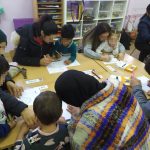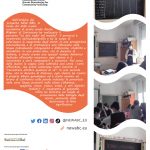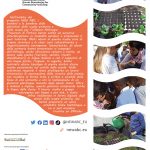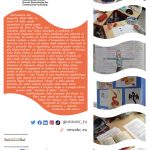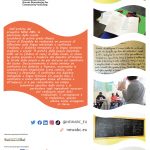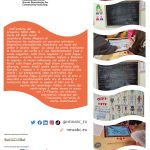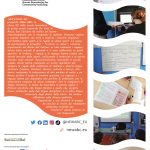It is important to implement this pilot because…
Pilot: Teacher training and family involvement in pluralistic approaches to language education
intense migration phenomena in recent times made Italy, as well as many European countries, a complex multilingual society. As a result, school institutions have always had a dual attitude towards multilingualism: school has traditionally been conceived as an agent for teaching the national language to new generations of citizens, at the possible detriment of multilingual repertoires; at the same time, many institutional actions and documents have encouraged a more open attitude towards the plurilingual background of pupils. Therefore, now more than ever, a renewal in teacher training practices is needed, and a more coherent synergetic strategy between the different stakeholders (teachers, pupils, families, and communities) should be deployed. The bottom-up nature of the actions in this pilot will lead to greater involvement of all its stakeholders, and to a co-constructed strategy that addresses both the concrete teaching problems and the involvement of migrant children’s families.
This pilot will take place in primary and middle schools with a culturally diverse population ranging from 6 to 14 years of age.
The aim of this pilot action is…
First testing of the pilot in
![]()
Italy
Second testing of the pilot in
![]()
Spain
to create conditions and activities so that multilingual skills are valued as a resource and an opportunity in the school curriculum.
The University of Turin and the University of Bologna teams will collaborate with schools and families to develop and implement a series of activities aiming to:
- raise awareness of teachers, students and families about benefits and educational outcomes of a multilingual oriented pedagogy;
- empower families in children’s school education, fostering bottom-up synergies and building a transversal multilingual learning environment, which can support the use and enhancement of a multilingual repertoire;
- support teachers in developing effective practices for the use and valorisation of plurilingual repertoires.

This pilot will contribute to addressing some or all of the following objectives:
- to increase the integration of the resources and skills of multilingual pupils in school’s regular teaching practices;
- to develop cognitive, metalinguistic and communicative strategies in the classroom;
- to enhance the linguistic repertoires of children in the classroom;
- to increase the active involvement of parents with migrant backgrounds in teaching and community activities.
Multimedia gallery
Photos of the pilot activities conducted in the repilot phase, in Catalonia
Photo gallery of the posters produced to show the different activities carried out at schools
